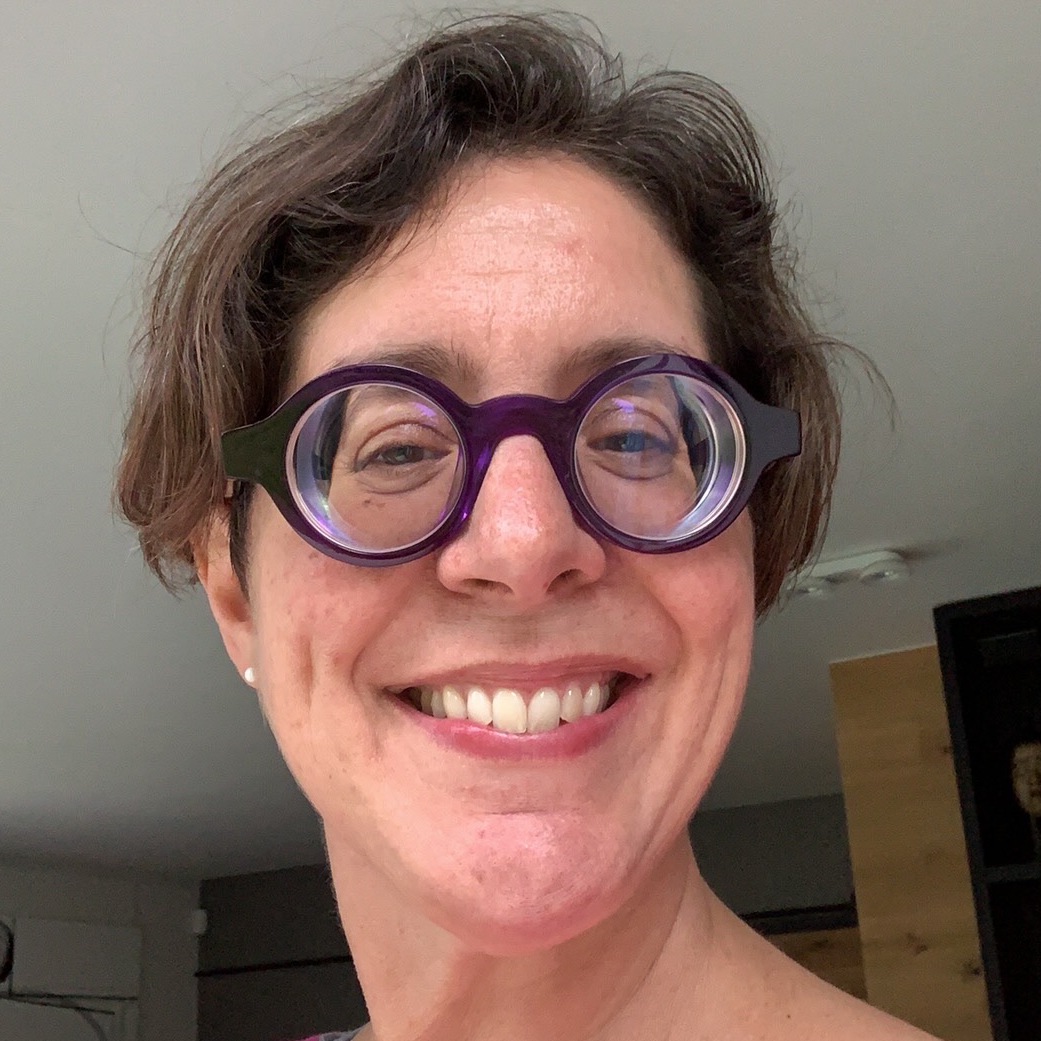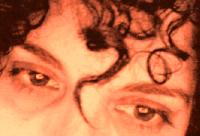| Pages in topic: [1 2] > | What makes a language a native one? Thread poster: Neema
|
|---|
Neema
Local time: 22:12
French to English
+ ...
Hi there,
I am new here and I have a question. I have two mother tongues, one is Berber which is a North African ancient language and the second is Arabic. But I don't put Berber in my profile since it is a very regional language. However my question is : if I attended a bilingual school French-Arabic from Kindergarten until Grade 12, and then went to French-language university, so does this make French my second native language?
Thanks,
Naima
| | | | | Definitely fluent, not sure about native... | Feb 5, 2008 |
IMO, I think the term "native" would imply some familial connection to the language, or exposure to the language from birth (i.e. growing up in a country where French was (one of) the native languages)...for example, my children are Czech/American, and I would call them native speakers of both Czech and English.
Native = mother tongue?
Curious what others will say...
jennifer
| | | | Sophie Blachet (X) 
France
Local time: 04:12
English to French
| Berber & Arabic | Feb 5, 2008 |
I would say that Berber and Arabic are your native languages.
Even if Berber is a dialect, why it can't be a native language since you used it young and apparently with family background?
As for French, I assume it is what it is called "near native", we see that expression some times if job posting.
It is just an opinion ...
Have a plesant day,
Sophie
| | | | Nesrin 
United Kingdom
Local time: 03:12
English to Arabic
+ ...
| Previous discussion | Feb 5, 2008 |
Hi Naima,
I remember taking part in a similar discussion last year. There it is http://www.proz.com/topic/71698 - You'll see that opinions are divided..
Good luck,
Nesrin
| | |
|
|
|
Parrot 
Spain
Local time: 04:12
Spanish to English
+ ...
| Divided indeed | Feb 5, 2008 |
However, in translation schools, great emphasis is laid upon the language in which one acquired a judgment of what is gramatically and orthographically correct and incorrect up to the age of 10 (approximately).
This puts a great onus upon the medium of instruction (and/or of socialization), and can (but not always) cast a doubt upon the family language, which can be painfully true if the family was fragmented (i.e., if its members speak different languages or variants, or live in a ... See more However, in translation schools, great emphasis is laid upon the language in which one acquired a judgment of what is gramatically and orthographically correct and incorrect up to the age of 10 (approximately).
This puts a great onus upon the medium of instruction (and/or of socialization), and can (but not always) cast a doubt upon the family language, which can be painfully true if the family was fragmented (i.e., if its members speak different languages or variants, or live in a society where their own language is not commonly spoken.) As I say, this is not always the case, but it is a factor that is not to be overlooked.
Generally, one language will end up predominant, and it may be easily identified in a code-switching situation as the language that provides the grammatical backbone (other languages will provide vocabulary).
[Edited at 2008-02-05 10:47] ▲ Collapse
| | | | Neema
Local time: 22:12
French to English
+ ...
TOPIC STARTER | I grew up in French-dominant culture | Feb 5, 2008 |
Thank you all very much for your answers.
Also, it might be relevant to mention that I grew up in Morocco which is an ex-French colony, and where, although Arabic is the official language, French is dominant and is the sole business language. In my family, we speak interchangeably in Berber, Arabic or French. For example, it would be Berber with grand-ma, Arabic or French with parents, mostly French with siblings and friends.
I honestly can't say I am stronger than one more than th... See more Thank you all very much for your answers.
Also, it might be relevant to mention that I grew up in Morocco which is an ex-French colony, and where, although Arabic is the official language, French is dominant and is the sole business language. In my family, we speak interchangeably in Berber, Arabic or French. For example, it would be Berber with grand-ma, Arabic or French with parents, mostly French with siblings and friends.
I honestly can't say I am stronger than one more than the other, although Berber is strictly oral. So for professional purposes, I am tempted to think of Arabic and French as my native languages. I guess I would label my French as 'near native' if there was such an option in Proz.
Jennifer:
Native = mother tongue?
Curious what others will say...
moth·er tongue /ˈmʌðər ˈtʌŋ for 1; ˈmʌðər ˌtʌŋ for 2/ Pronunciation Key - Show Spelled Pronunciation[muhth-er tuhng for 1; muhth-er tuhng for 2] Pronunciation Key - Show IPA Pronunciation
–noun
1. the language first learned by a person; native language.
Cheers,
Naima ▲ Collapse
| | | | Nesrin 
United Kingdom
Local time: 03:12
English to Arabic
+ ...
| It's ultimately your decision | Feb 5, 2008 |
I see what you're saying Naima, and I think that the only person who can decide that is you. It's a very grey area, there should be no general rule.
Who's to say that a language you've spoken fluently since you were little isn't your native language? And what if, for the past 20 years or so, you've almost exclusively been speaking your "second language"?
I think as long as people are honest enough and able to assess their abilities accurately, only they should decide whether or not ... See more I see what you're saying Naima, and I think that the only person who can decide that is you. It's a very grey area, there should be no general rule.
Who's to say that a language you've spoken fluently since you were little isn't your native language? And what if, for the past 20 years or so, you've almost exclusively been speaking your "second language"?
I think as long as people are honest enough and able to assess their abilities accurately, only they should decide whether or not they are "native".
[Edited at 2008-02-05 15:53] ▲ Collapse
| | | | Vito Smolej
Germany
Local time: 04:12
Member (2004)
English to Slovenian
+ ...
SITE LOCALIZER | "what makes a language a native one?" | Feb 5, 2008 |
... what somebody else (like immigration officials & similar) decides upon or (preferably) what one feels about it. Pls note that "native" comes from nascor, natus (be born). Which has proven to be illogical / unfair / short-sighted in a lot of cases.
I think anyhow that ProZ uses not just the letter of (whatever) law, but also the brain and the heart.
[Edited at 2008-02-05 20:35]
| | |
|
|
|
Michele Fauble 
United States
Local time: 20:12
Norwegian to English
+ ...
| Young age and community of native speakers | Feb 5, 2008 |
To claim a language as a native language is to make a claim about the age at which it was acquired and the circumstances under which it was acquired - at a young age (before adolescence) and as a member of a community of native speakers (family and/or community in which one lives).
| | | | Neema
Local time: 22:12
French to English
+ ...
TOPIC STARTER | Thank you.... | Feb 6, 2008 |
Thank you all for your responses. They had certainly shed a light on my uncertainties.
Naima
| | | | Neil Coffey 
United Kingdom
Local time: 03:12
French to English
+ ...
| "Native" from a linguistic perspective | Feb 11, 2008 |
From a perspective of linguistic theory, being a native speaker of a language usually implies that you have "internalised" the patterns in syntax, sound system etc that make up that language. That means that you have acquired some subconscious set of rules/patterns that allow you to make judgements about relatively rare aspects of that language, or aspects that are difficult to break down into conscious rules. For example:
* Can you make instant grammaticality judgements about relatively r... See more From a perspective of linguistic theory, being a native speaker of a language usually implies that you have "internalised" the patterns in syntax, sound system etc that make up that language. That means that you have acquired some subconscious set of rules/patterns that allow you to make judgements about relatively rare aspects of that language, or aspects that are difficult to break down into conscious rules. For example:
* Can you make instant grammaticality judgements about relatively rare types of sentence in that language, e.g. in English "Who did you wonder whether came?" vs "Who did you wonder if came?" vs "Who did you wonder whether/if they came?"
* Can you instantly judge whether a particular word or sequence of sounds is plausible in that language?
* In perception tests, do you hear or categorise sounds in the same way as other native speakers? (e.g. English "ba" may sound closer to "pa" for native French or Spanish speaker, because the latter speakers fully voice [make their vocal cords continue to vibrate during] the 'b' sound whereas English speakers don't)
* Does your speech "sound native", and do you make it "sound native" in the same way as other native speakers? This includes some easy-to-categorise patterns, e.g. in English the 'n' at the end of the word "ten" nearly always takes on the place of articulation of the following sound ("ten girls" is actually pronounced more like "teng girls"), whereas French speakers don't make this type of assimilation. And it could include some difficult-to-categorise patterns: e.g. do you use the same mechanism to voice your 'b' sound as other native speakers?
Clearly, there's variation among native speakers, so one way to look at this would be: is the variation between your language and that of another native speaker different only to the same extent as the language of other different native speakers.
From some theoretical standpoints, a "native" language is necessarily acquired from near birth because the brain is programmed to make certain adaptations e.g. tuning the perceptual space within the first few months, or seeking to pull out settings for certain syntactic "parameters" during the early years. A counter-argument to this is that there are speakers with a great deal of exposure to the language in later life who do appear to make some of the "native speaker" judgements mentioned above.
[Edited at 2008-02-11 19:00] ▲ Collapse
| | | | Neema
Local time: 22:12
French to English
+ ...
TOPIC STARTER | Very interesting perspective | Feb 11, 2008 |
Neil,
Thank you for taking the time to share your thoughts with me. I really find the linguistic perspective enlightening and the questions you presented very interesting. By keeping that perspective in mind, I can see for example how English is definitely not my native language - which I never claimed anyways: I acquired the language 15 years ago and I sound almost native but I do have 'blockage' at times. On the other hand, I can see how either or all of Berber, Arabic and French can qu... See more Neil,
Thank you for taking the time to share your thoughts with me. I really find the linguistic perspective enlightening and the questions you presented very interesting. By keeping that perspective in mind, I can see for example how English is definitely not my native language - which I never claimed anyways: I acquired the language 15 years ago and I sound almost native but I do have 'blockage' at times. On the other hand, I can see how either or all of Berber, Arabic and French can qualify as my native language. I acquired all three since childhood. At any rate, I see how it is all relative and very individual.
Thanks for all of you. I appreciate your opinions.
Neema ▲ Collapse
| | |
|
|
|
| Thanks, Neil, for putting that in writing: | Feb 11, 2008 |
Very interesting post: especially
Neil Coffey wrote:
Clearly, there's variation among native speakers, so one way to look at this would be: is the variation between your language and that of another native speaker different only to the same extent as the language of other different native speakers.
Except that a non-native might think his/her variation is no greater than that between "real" natives. Only a native can judge that!
I think it comes down to whether true (for want of a better word) natives can tell. If you can convince them, you're at least damn close.
On ProZ, you just need to tick the appropriate box to be a native speaker. (Where's the box for "millionaire"?)
C
| | | | dcanossa 
Spain
Local time: 04:12
English to Spanish
+ ...
| You have to FEEL it... | Feb 11, 2008 |
What does being a native speaker mean? I have a clear example. My cousin from Miami has learned English and Spanish simultaneously. My aunt always spoke to her in Spanish while my uncle did it in English. She also went to a bilingual school and has both English and Spanish speaking friends and relatives. Therefore, theoretically, she is a native speaker of Spanish and English, but while her Spanish is excellent, I can tell it is not the language she feels as her mother tongue and I can detect so... See more What does being a native speaker mean? I have a clear example. My cousin from Miami has learned English and Spanish simultaneously. My aunt always spoke to her in Spanish while my uncle did it in English. She also went to a bilingual school and has both English and Spanish speaking friends and relatives. Therefore, theoretically, she is a native speaker of Spanish and English, but while her Spanish is excellent, I can tell it is not the language she feels as her mother tongue and I can detect some (subtle) mistakes sometimes.
I believe you are native speaker when you feel 100% comfortable with the language, like when you speak in your native language. If while speaking you have some hesitations as to how to say something, whether it is related to grammar or vocabulary, then you are not native, even if you have a great command of the language. But also, in this matter I would trust in a native speaker. If they tell you you sound native, if they don't notice a difference, then I guess you are! ▲ Collapse
| | | | Sultan Khanfar
United Arab Emirates
Local time: 07:12
Arabic to English
+ ...
Diego Canossa wrote:
I believe you are native speaker when you feel 100% comfortable with the language, like when you speak in your native language. If while speaking you have some hesitations as to how to say something, whether it is related to grammar or vocabulary, then you are not native, even if you have a great command of the language. But also, in this matter I would trust in a native speaker. If they tell you you sound native, if they don't notice a difference, then I guess you are!
Agreed.
Being a native speaker of a particular language requires fast processing and understanding of the language (i.e. not much time in planing your words to sound grammatically or semantically correct). In other words, it's the ease you feel when using your first language that makes you native in other languages.
[Edited at 2008-06-17 09:50]
| | | | | Pages in topic: [1 2] > | To report site rules violations or get help, contact a site moderator: You can also contact site staff by submitting a support request » What makes a language a native one? | Trados Studio 2022 Freelance | The leading translation software used by over 270,000 translators.
Designed with your feedback in mind, Trados Studio 2022 delivers an unrivalled, powerful desktop
and cloud solution, empowering you to work in the most efficient and cost-effective way.
More info » |
| | Trados Business Manager Lite | Create customer quotes and invoices from within Trados Studio
Trados Business Manager Lite helps to simplify and speed up some of the daily tasks, such as invoicing and reporting, associated with running your freelance translation business.
More info » |
|
| | | | X Sign in to your ProZ.com account... | | | | | |












